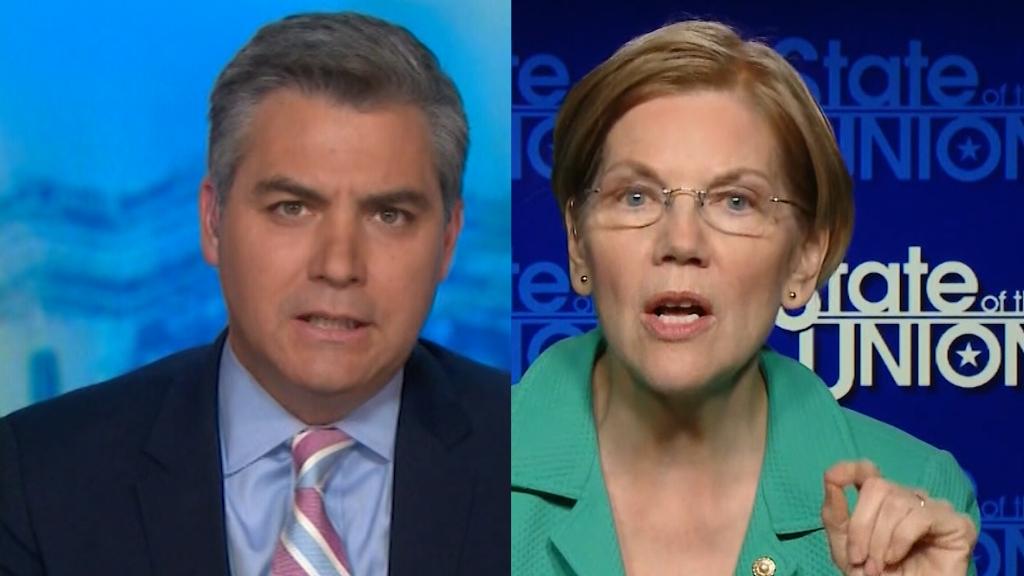
Regional banks could reward shareholders with up to $53 billion if Congress rolls back Dodd-Frank.
The Senate recently passed a banking bill that would shield large regional banks from tough scrutiny that requires them to sit on extra cash to weather the next financial storm.
If the House follows suit, banks that already have enough cash will be able to celebrate by paying fatter dividends and share buybacks.
Freed from the enhanced regulations, these lenders could ramp up shareholder payouts by as much as $53 billion altogether, according to S&P Global Market Intelligence.
If they aggressively returned money, BB&T (BBT), Citizens Financia (CFG)l, SunTrust Banks (STI) and Fifth Third Bancorp (FITB) could reward investors with between $3.7 billion and $4.8 billion apiece, S&P said.
"Most of these banks believe they have too much capital — but they haven't been able to unlock it," Nathan Stovall, senior research analyst at S&P Global Market Intelligence, said in an interview.
Regulators have forced banks to build a firewall of cash to soften the blow of another recession, which would drive up losses on mortgages and other loans.
Mega banks like JPMorgan Chase (JPM) and Wells Fargo (WFC) would not be helped by the legislation, although they could benefit from a proposed rule change by the Federal Reserve.
Related: Bankers worry Dodd-Frank rollback in peril
The bill, crafted by Republican Senator Mike Crapo of Idaho, aims to boost the economy by scaling back post-crisis regulation on community banks and other lenders.
The legislation would allow more than a dozen banks to escape the dreaded scrutiny that comes from being known as "too big to fail." The trigger for that classification would rise to $250 billion in assets, up from just $50 billion today.
That means major lenders such as KeyCorp (KEY), Ally Financial (ALLY) and M&T Bank (MTB) would no longer face the higher capital requirements that comes from being a "too big to fail" bank. These banks would no longer need the Fed's blessing to raise their dividends or buy back stock.
The American Bankers Association, an industry group, has said the rollback would "allow financial institutions to better serve their customers and communities while maintaining safety and soundness."
The banks that should have the most room to return cash to shareholders are CIT Group (CIT), Zions Bancorp (ZION), Citizens Financial and Comerica (CMA), according to an analysis by Keefe, Bruyette & Woods.
"It's definitely a big win," said KBW analyst Brian Klock. "Investors are thinking: We want you to make loans, maybe even acquire more banks, and if you can't do that return the capital to me."
American Express (AXP) and Discover Financial (DFS), card giants that own banks, would also get regulatory relief from the Crapo bill. But very large regional lenders PNC (PNC) and US Bancorp (USB) wouldn't because they have more than $250 billion in assets.
Analysts argue that regional lenders generally have more cash than they need, in part because they may not pose a risk to the financial system.
Related: Bank of America hauls in biggest profit ever
But supporters of Dodd-Frank say that relaxing regulations on these large regional players could be unwise. While not as big as Bank of America (BAC), regional banks are still sizable and they play a key role in the economy.
It's also worth noting that the banking industry is thriving, despite claims of excess regulation. Excluding a one-time hit from the tax law, banks hauled in an all-time high of $183 billion of profit last year. Banks even had enough cash left over to pay a record $121 billion in dividends.
"We have had years of a stable financial industry, expanding economy and record bank profits, but the industry is asking for help," Phil Angelides, who led the official inquiry into the 2008 financial crisis, recently told CNNMoney.
"This is the best model — but they don't seem willing to leave it alone," he said.
So is there a risk that the pendulum will swing too far away from regulation, allowing banks to squander their cash cushions?
KBW's Klock said he thinks banks will be more careful this time because executives learned the lesson from 2008.
"That is obviously a risk that every investor thinks about. We don't want to watch that movie from the crisis played again," said KBW's Klock.


